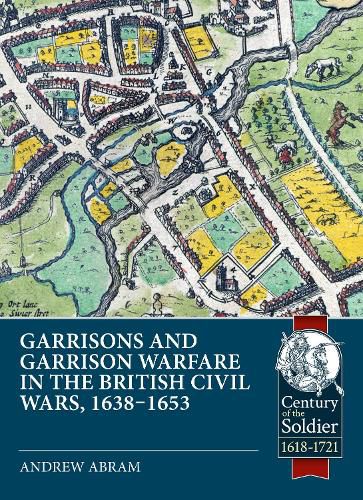Readings Newsletter
Become a Readings Member to make your shopping experience even easier.
Sign in or sign up for free!
You’re not far away from qualifying for FREE standard shipping within Australia
You’ve qualified for FREE standard shipping within Australia
The cart is loading…






Drawing on comprehensive archival research and published primary sources, Garrisons and Garrison Warfare in the British Civil Wars examines the role of garrisons, their composition, logistics, financing, armament, and clothing, including Worcester, Lichfield, and Windsor. Military histories of the British Civil Wars have often focused on battles, military campaigns, and field armies, neglecting the role, organisation, and composition of garrisons, as well as sieges and garrison warfare. However, this perspective contradicts the key characteristics of the conflict, as the most common forms of combat - rather than set-piece engagements - were sieges of and assaults on fortified defences. Furthermore, apart from the formation of the New Model Army in 1645, substantial numbers of Royalist and Parliamentarian troops and military resources were dedicated to garrisoning cities, towns, and ports, while the provisioning and supply of these garrisons often burdened local civilian populations, upon whom taxes and other resources were levied. Troops from garrisons also marched out to augment other forces and returned to them for their safety. Urban centres and garrisons also controlled trade and movements by dominating the hinterland between transportation routes and other areas of military operations. Hence, this highly relevant and interesting topic will significantly enhance our knowledge of the role of garrison troops and the activities they undertook. AUTHOR: Dr Andrew Abram served in the British Army between 1978 and 1991. In 2007 he gained a doctorate in History at the University of Wales, Lampeter. Andrew was a lecturer at Lampeter until 2015, followed by a spell as associate lecturer at Manchester Metropolitan University. Dr Abram's interest in the British Civil Wars and seventeenth-century conflicts more generally, has led to the publication of five monographs by Helion & Co., in addition to various journal articles and chapters in edited collections. Andrew is currently secretary of the Battle of Winwick Society, and lives with his family in the Peak District. 30 b/w illustrations, 5 b/w photos, 10 tables, 4 b/w maps
$9.00 standard shipping within Australia
FREE standard shipping within Australia for orders over $100.00
Express & International shipping calculated at checkout
Drawing on comprehensive archival research and published primary sources, Garrisons and Garrison Warfare in the British Civil Wars examines the role of garrisons, their composition, logistics, financing, armament, and clothing, including Worcester, Lichfield, and Windsor. Military histories of the British Civil Wars have often focused on battles, military campaigns, and field armies, neglecting the role, organisation, and composition of garrisons, as well as sieges and garrison warfare. However, this perspective contradicts the key characteristics of the conflict, as the most common forms of combat - rather than set-piece engagements - were sieges of and assaults on fortified defences. Furthermore, apart from the formation of the New Model Army in 1645, substantial numbers of Royalist and Parliamentarian troops and military resources were dedicated to garrisoning cities, towns, and ports, while the provisioning and supply of these garrisons often burdened local civilian populations, upon whom taxes and other resources were levied. Troops from garrisons also marched out to augment other forces and returned to them for their safety. Urban centres and garrisons also controlled trade and movements by dominating the hinterland between transportation routes and other areas of military operations. Hence, this highly relevant and interesting topic will significantly enhance our knowledge of the role of garrison troops and the activities they undertook. AUTHOR: Dr Andrew Abram served in the British Army between 1978 and 1991. In 2007 he gained a doctorate in History at the University of Wales, Lampeter. Andrew was a lecturer at Lampeter until 2015, followed by a spell as associate lecturer at Manchester Metropolitan University. Dr Abram's interest in the British Civil Wars and seventeenth-century conflicts more generally, has led to the publication of five monographs by Helion & Co., in addition to various journal articles and chapters in edited collections. Andrew is currently secretary of the Battle of Winwick Society, and lives with his family in the Peak District. 30 b/w illustrations, 5 b/w photos, 10 tables, 4 b/w maps